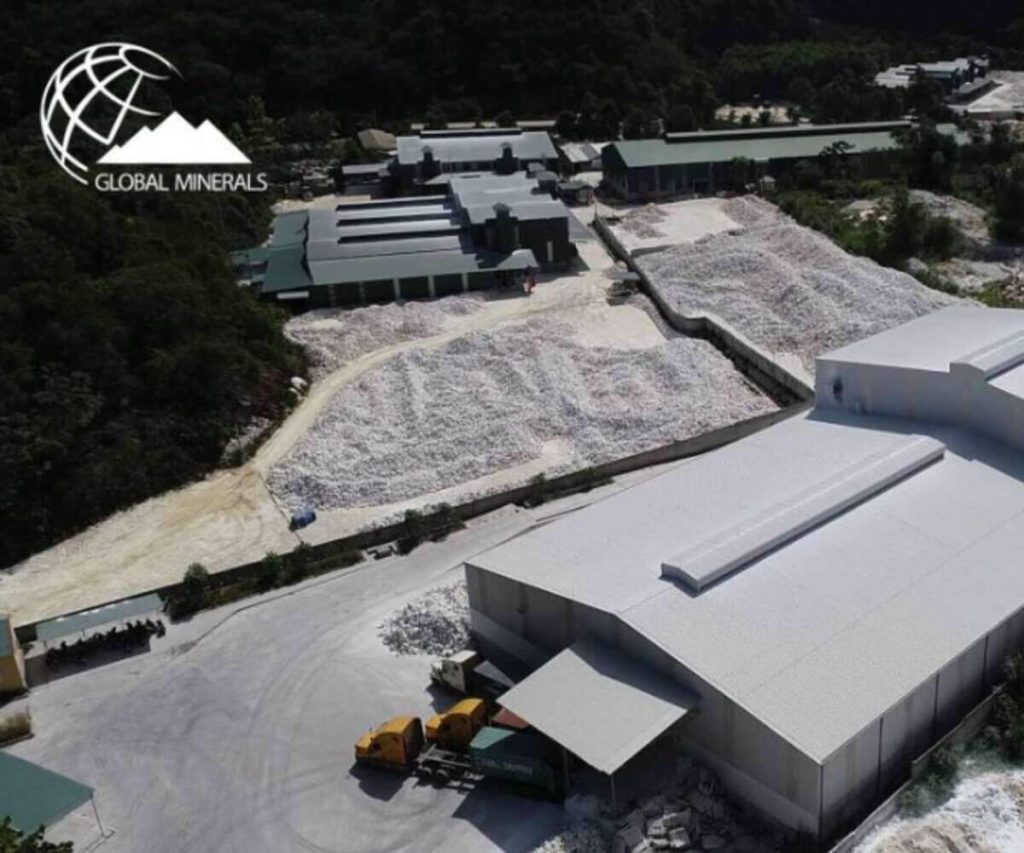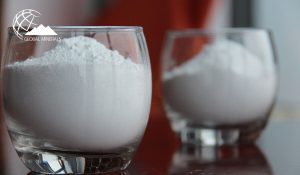Ground Calcium Carbonate (GCC) also known as Calcite powder, is a special and indispensable mineral due to its wide range of applications in various industries.
Ultrafine calcium carbonate (GCC) from Global Minerals.
Nhat Huy Group provides high-quality calcium carbonate powder with a CaCO3 ratio greater than 98.5%, which means that impurities such as silica & iron particles in Nhat Huy’s products will be very low (up to 0.01%). Our CaCO3 has high brightness, whiteness, and controlled particle size to ensure high dispersion & transparency in the final output products. Superfine calcium carbonate is surface treated to increase dispersibility and solubility.

See more: What is ground calcium carbonate (GCC) powder? xxx
Applications of ultrafine calcium carbonate (GCC).
Ultrafine calcium carbonate powder (GCC) is commonly used as the main raw material for the production of fillers and in the chemical industries especially the rubber industry.

Specific applications of ultrafine calcium carbonate powder:
1. Rubber industry: Ultrafine calcium carbonate is one of the largest bulk fillers used in the rubber industry. Calcium carbonate is filled into the rubber to obtain higher tensile strength, wear resistance than pure rubber sulfide. It also increases product volume, minimizing costs compared to using expensive 100% natural rubber.
2. Plastic industry, superfine calcium powder plastic – synthetic resin: Calcium carbonate plays the role of the skeleton in plastic products, has a great effect on the dimensional stability of plastic products, and at the same time can improve the durability of plastic products. product hardness and gloss – the flatness of the surface. Because the whiteness of Global Minerals calcium carbonate is over 98%, it can also replace expensive white pigments.
3. Paint & Powder Coating Industry: GCC acts as an extender for Titanium Dioxide. GCC’s micro-particle size extends paint opacity and gloss and saves overall material costs.
4. Adhesive & Sealant Manufacturing Industry: Ultrafine calcium carbonate is used to adjust the rheology and color of products.
5. Paper making industry: Requirement for min whiteness 95%, calcium carbonate content: 98% calcium carbonate plays an important role in the paper industry. It can ensure strength, increase the brightness and smoothness of the paper.
6. Specialized layers of calcium carbonate are used to produce breathable membranes in diaper and toiletries applications.
7. Raw calcium carbonate is used in animal feed to increase calcium intake for animals.



